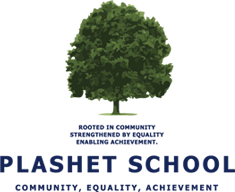Business & Computing
Introduction to Business and Computing
The Computing and Business department is staffed by four specialist teachers. Each teacher is based in a modern ICT suite that is equipped with 30 networked computers. Students have access to the latest software and various online facilities such as our virtual learning environment (VLE). We use Google Classroom extensively which means students are able to access their work and resources online both in school and at home on any device with a browser. Home study and assignments are usually submitted for marking online and feedback can also be given online.
We take students' personal safety when using the computers very seriously. All students undertake units of work on e-safety. We teach students about how to keep themselves and their personal information safe when online.
Curriculum Content
KS3
All students follow the new National Curriculum programme of study for computing.
The subject of computing allows students to develop their knowledge and skills in three related areas:
- Computing – The study of how computers work both practically and theoretically. This includes topics such as data representation, binary, binary logic gates, hardware, and programming. The programming units of work develop problem solving and computational thinking skills.
- Information Communication Technology (ICT) – The study of how computer technology is used in the wider world. Students will learn how to use key applications and understand their role in data processing and communication.
- Digital Literacy – The study of how computers and ICT impact on our everyday lives. Students learn how to use technology safely and responsibly (eSafety)
KS4
Information Technology (OCR Cambridge Nationals J836) – In this course students learn how IT is used in the business environment to develop innovative solutions. This involves the analysis of existing problems and then using IT based tools and techniques to provide well designed solutions.In addition to the practical element, there is also a theory based element where important topics such as cyber security, legal aspects of IT use and how computers affect society and people are covered.Students will develop high level skills in various software applications such as databases, spreadsheets and multimedia tools.
GCSE Business Edexcel 1BS
/docs/Curriculum_Subjects/5_4_Business_2023-24.pdf
This subject allows students with an interest in the world of business to gain an understanding of how businesses are set up and how businesses grow. Topics such as marketing, new product development, finance, economics and business ethics are covered. During the course students will look at many real business case studies such as KFC, JD Sports, Sainsburys, Oacado and Tesla. How businesses can use social media and influencers within their promotional strategies is a new area within the syllabus. GCSE Business provides students with an excellent grounding in the key business concepts which will be of use in many future study and career pathways in areas such as business and finance, marketing, economics, business law and accounting.
GCSE Computer Science OCR J277
/docs/Curriculum_Subjects/5_5_Computer_Science__23-24.pdf
The course allows students to develop their understanding and knowledge of the core concepts of computer science. This includes investigating how computers work, how data is represented and analysing problems and finding solutions using computational thinking methods by designing, writing, testing and evaluating programs. This course is an excellent foundation for further study in computing related courses at A Level and beyond
